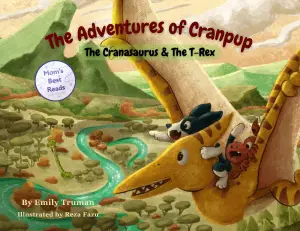Exploring the Cosmos: A Review of The Future of Geography: How Power and Politics in Space… by Tim Marshall
As a long-time fan of Tim Marshall’s exploration into the interplay of geography and political power, I was thrilled to dive into his latest work, The Future of Geography: How Power and Politics in Space. This book strikes a deeply personal chord with me, as I’ve always been fascinated by the tantalizing prospects and unforeseen complexities of space exploration, colonization, and—let’s face it—militarization. Marshall expertly navigates this captivating terrain, revealing just how crowded our cosmic backyard has become.
In The Future of Geography, Marshall brings forth a kaleidoscope of ideas and insights, outlining the influence of geography in the age of space exploration. He paints a vivid picture of our current cosmic landscape, where not just powerhouses like the U.S., Russia, and China dominate. Interestingly, countries like Israel, the UAE, and even nations across Africa now boast space programs. With 4,900 satellites orbiting Earth as of the book’s publication, Marshall’s analysis highlights entities jockeying for position in this new frontier, making it clear that the competition is fierce and multifaceted.
What I found particularly compelling were the ominous implications of this competitive landscape. Chapter 9, "Space Wars," is a nerve-wracking contemplation of potential near-future conflicts that could resemble the Cuban Missile Crisis. Marshall warns that as humanity continues to venture into new spatial domains, the specter of war follows closely behind—especially given the advanced weaponry capabilities now rooted in space. This chapter left me questioning the very ethics of our cosmic ambitions.
Marshall’s writing style blends expert analysis with a dash of dry humor, making complex ideas accessible. His pace keeps readers engaged while also allowing for reflection on the immense implications of his arguments. The way he juxtaposes historical data—like the U.S. military’s devastating efficiency in Iraq, aided by satellite technology—with potential future scenarios is particularly striking. His insights on satellite debris—over 23,000 pieces larger than a grapefruit—evoke a sense of urgency about our failure to care for this shared space, something I hadn’t considered deeply before.
One memorable quote that resonated with me was: “All the imagined and unimagined wonders are out there, in front of us, waiting to be discovered by Homo Spaciens.” Marshall’s optimistic undertones are reassuring amidst the weight of potential disasters. He deftly reminds us how much we’ve gained from our forays into space—advances in water purification, microtechnology, and even the very smartphones we use daily. These connections injected hope into my reading experience, illustrating that exploration can yield profound benefits, even in the face of dire warnings.
I believe this book will captivate not just space aficionados but anyone keen on understanding the evolving power dynamics of our time. Marshall’s work is a crucial reminder of the delicate balance we need to strike between ambition and responsibility in our journey into the cosmos. Personally, The Future of Geography served as both a thought-provoking exploration and a wake-up call. It left me pondering the future of humanity in not only outer space but also within the human spirit—the enduring quest for knowledge, discovery, and perhaps, a better understanding of our place in the universe.
In the end, Marshall’s latest offering is more than just a book; it’s an invitation to engage with the future—to imagine what might come next and to reflect on the path that got us there. Highly recommended for those curious about where we’re headed and what it means for the world we inhabit.
Discover more about The Future of Geography: How Power and Politics in Spac… on GoodReads >>


















